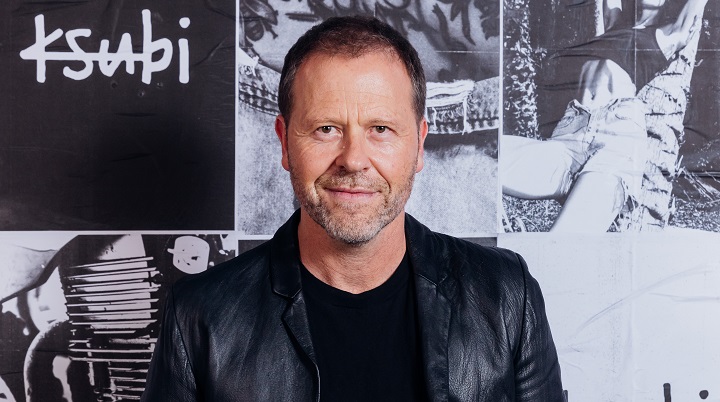Craig King started his retail career working on the shop floor of a luxury fashion boutique. What started as an unplanned detour from his university studies, turned into a lifelong passion for driving better business outcomes. Here, the CEO of Australian denim brand Ksubi reflects on a key moment that changed his career path, and the number one thing he looks for when hiring. Inside Retail: How did you start your fashion career? Craig King: I had taken a year off from uni because I was going dow
s going down the medical route, and it wasn’t really for me, and I was walking down the street with my sister, and there was a jacket in the window of this fancy store. It was half price, and my sister said, “You should go in and buy that.” I think it was $500 – this was back in 1989 – and I had to make five payments on lay-buy. So I kept going into the store, and I got to talking with the staff, and I told them that I was thinking of getting a job to save some money and go around the world. They said, “Do you want to work here?” I hadn’t done anything like that before, but they said, “Wear a white T-shirt, blue jeans and your new jacket, and we’ll see you on Monday.”
We sold quite expensive garments – Comme des Garçons, Yohji Yamamoto, Jean Paul Gaultier – and after working there for a few months, I noticed that we would turn over some things really quickly, and some things would sit around forever. So I asked my boss if I could take the carbon copies – this was before computers – and work backwards to come up with a bit of a buy plan. He said, “Knock yourself out.” So I did that, and it was quite successful. He made me an offer that if I was to stay on for another year, he would take me to Paris, London, and New York to see the shows. I quickly agreed to it, and that’s how I became a retailer.
IR: When you were working on the shop floor, did you ever envision that you would one day be a CEO?
CK: It was more pressure from my dad, who was wondering why I was working in a store? I worked hard to become a manager for a group of stores, and I suppose I had a fairly competitive nature back in the day. It was really about the fact that I liked controlling things. I liked being able to do things and see the outcome, and the ultimate extrapolation of that is if you’re running the business. It wasn’t necessarily something I was thinking about in my early 20s.
When I was about 28, my girlfriend’s best friend was dating a guy who was reasonably famous from a marketing perspective. We were having dinner at his house, and he asked me to grab another bottle of wine from a room, and it was full of books, so I asked him, “What’s with all the books?”
He said, “I started my first advertising agency when I was 21. I was competing against guys that were 50. I could organically learn over time, but that wasn’t going to help me compete with the people who were 25 years ahead of me, so I had to accelerate my learning. I sat down and looked at all the areas where I had weaknesses, and I started reading a book a week. That lasted for about 10 years, and that’s what’s in that room.”
I personally didn’t love reading, but it really resonated with me, so I started reading a book – not a week, but probably about a fortnight. That lasted for seven years, and it really helped me grow.
Once you start to get to 20, 40, 60 books, it’s like a jigsaw puzzle. All these areas start coming together. That was a really important time for me. I had this hands-on experience from the shop floor, knowing why customers bought things, or didn’t buy things, and that salesmanship that I think is really invaluable and always look for when I’m employing people, and I just added these other layers. By the time I was 35, I felt fairly polished in accountancy, P&Ls, human resources – areas I would have to be good at. I landed the job of GM at General Pants in 2006, and then in 2010, I became CEO.
I’ve passed this idea onto the people I work with, particularly at General Pants, where we used to take people from stores, who didn’t necessarily have a tertiary degree, and give them entry levels [in the head office]. We could always pick the ones who were hungry and asking lots of questions, and they would often pass the ones with degrees and more traditional learning backgrounds.
IR: What attributes do you look for when you’re hiring?
CK: When we’re recruiting for any role, the first round often happens before they get to me, so by the time they get to me, they probably tick all the boxes. I really want to know if they are passionate? I think there are two types of people: batteries included, and batteries not included. We want to employ batteries-included people, we don’t want to have to charge them up every Monday. We want them to come in, kicking the door down, saying, “Let’s make a difference.” The hungrier, the keener, the more ambitious, the better.

